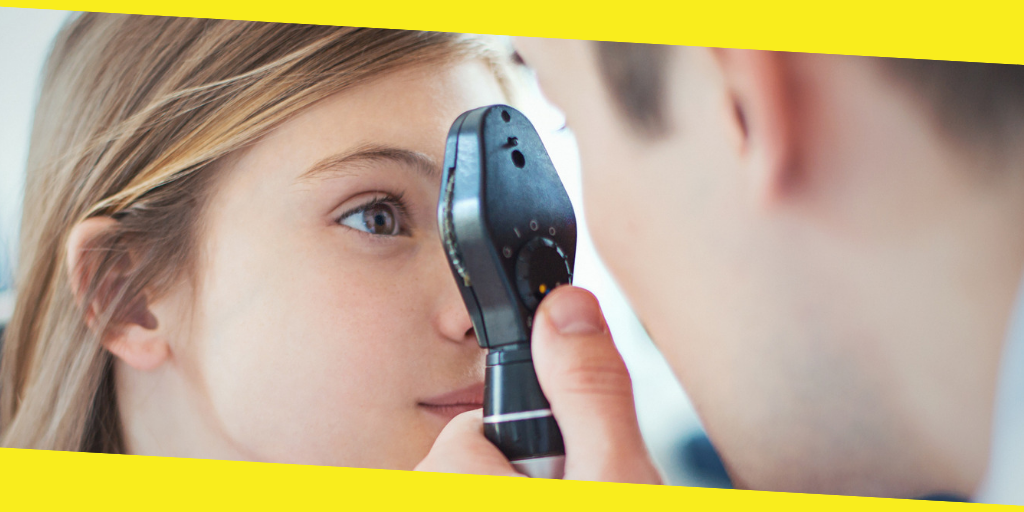How to Know If You Need an Eye Exam or Not
This post was last updated on January 28th, 2025

Eye health is often the most neglected aspect of our health and most of us are guilty of taking our vision for granted. Eye exams often aren’t included in our routine checkups. But did you know that regular eye exams are vital for maintaining a healthy vision? Periodic eye checkups allow early detection of underlying eye problems. Most of the eye health problems and even vision loss can be prevented due to early detection.
How Often Should You Get Your Eyes Checked?
If you are wondering how often you should get an eye exam, there is no specific answer. The frequency of eye exams depends on your health and age. For some people, a yearly eye exam would suffice. Whereas for those with health conditions such as diabetes, a family history of glaucoma or congenital eye conditions like cataracts, children who are born prematurely, people who have had previous eye surgery or trauma may need their eyes checked more than once a year. The best possible answer is to consult your eye doctor for understanding your vision and how frequently you need an eye exam. If your eyesight is deteriorating, disposable contact lenses might be your best option.
What Are the Signs Which Indicate the Need for an Eye Exam?
The 6 signs listed below are clear indications that you should undergo an eye exam from a certified ophthalmologist.
1. Infections and allergies
If you notice redness or swelling in your eyes or experience light sensitivity, pain, blurred vision, excessive discharge or tearing, you may be suffering from some eye infections or allergies. Even if the symptoms are not severe, it is crucial to have an eye examination from a certified eye doctor.
2. Blurred Vision
If your work requires spending long hours before the computer screen continuously, you may have experienced digital eye strain or blurry vision. If you wear prescription glasses and your prescription number has changed, there are chances that you might experience blurred vision. Such situations indicate that you need to get an eye exam immediately.
3. Constant Squinting
If you find yourself struggling to see or read and are constantly squinting, it may possibly be a cause of concern. Also, your eyes and eyesight change naturally over time. So if you find it difficult to read or see and are squinting a lot, it’s time you should get an eye exam.
4. Frequent Headaches
There can be multiple reasons for a headache. For instance, your vision might be changing, digital eye strain from constant exposure to digital screens etc. Headaches are often the first sign indicating eye problems and are usually accompanied by tired eyes. So if you are experiencing frequent headaches, consult an eye doctor for a comprehensive eye exam.
5. Difficulty in Driving at Night
When the street signs and roads lines don’t appear clear to you while driving at night, it may be a sign of nearsightedness, vision loss or astigmatism. When the light passes through the cornea to the retina, the light rays meet at a single point at the back of the eye. In astigmatism, since the cornea is distorted the light rays entering it, meet at different points and result in blurred vision. Under poor light or during the night, this blurriness worsens. This condition is known as astigmatism. Hence, if you experience difficulty in driving at night, consider getting a comprehensive eye exam.
6. Bright Flashes and Floaters
Seeing floaters in the field of vision is perfectly normal most of the times. However, if your sight suddenly becomes filled with floaters, schedule an eye exam as soon as possible. Besides, if the floaters are accompanied by bright flashes of light or loss of peripheral vision, you should immediately consult an eye doctor. Both these signs are symptoms of retinal detachment and may lead to permanent blindness if not treated immediately.
Whether you are at an increased risk of eye diseases due to any health conditions, age or experience any of the signs listed above, it’s time you get a comprehensive eye exam done. Talk to your eye doctor and find out about the status of your vision and the frequency of eye exam suitable for you.

Author Bio: Aaron Barriga is the online marketing manager for Insight Vision Center. With a knack for understanding medical procedures, and an interest in eye and vision health, Aaron loves to share what he knows and what he learns. He blogs at Studyclerk with a mission of informing readers about the latest eye care technology and other topics related to eye care and eye health. He loves collecting coasters from the different bars and restaurants he visits during his travels.
Recommended For You
Back To Running After Having A Baby: The Pelvic Floor
Most Inside
Most Inside offers high-quality recommendations and valuable updates to enhance all aspects of your life, providing premium guidance and enriching experiences.




